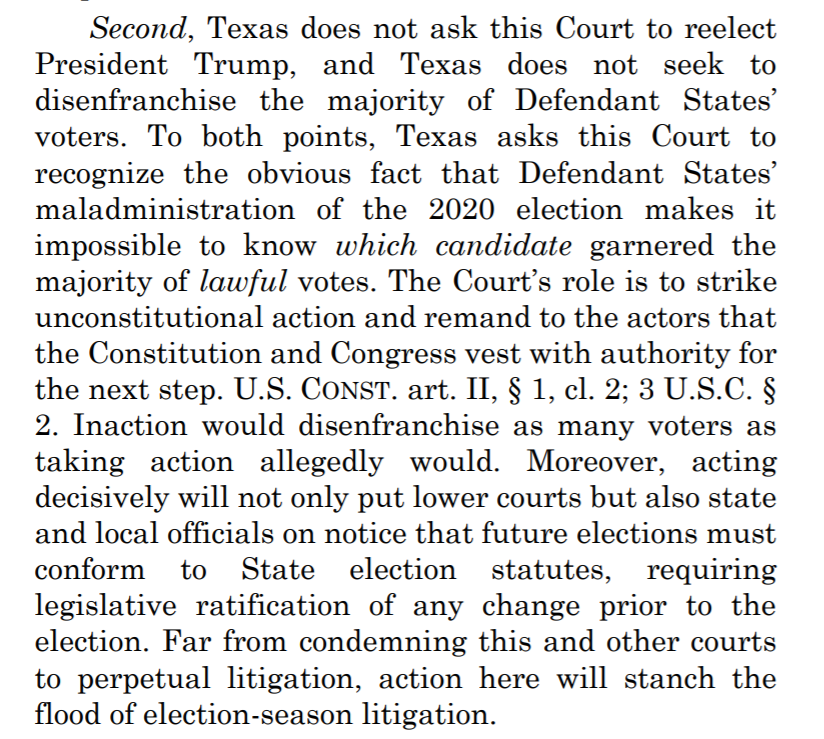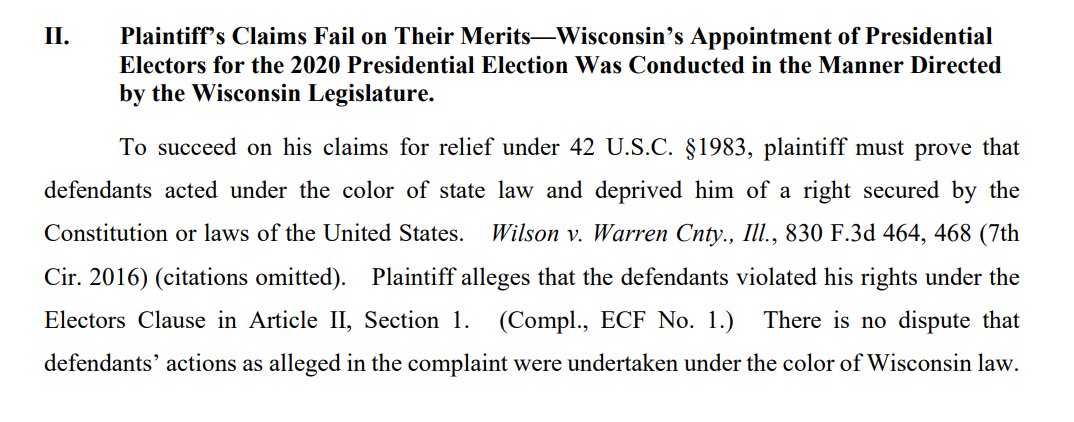
Texas has filed its reply brief in its Supreme Court lawsuit seeking to overturn the results of the presidential election in four other states.
supremecourt.gov/DocketPDF/22/2…
supremecourt.gov/DocketPDF/22/2…

Texas says it "does not seek to disenfranchise the majority of Defendant States' voters." Rather it argues nobody knows who won those states. 

Here Texas argues that its' expert's statistical analysis holds up not in spite of his blinding ignorance of how elections work but *because of it.* (The absentee votes that took longest to count absolutely were not randomly distributed across the states.) 

Texas further argues that because Michigan didn't understand some of the factual gibberish in its allegations, the allegation must be correct! 

Michigan's brief basically said it had no idea what Texas was talking about because the allegation in its complaint didn't make sense. Texas takes this as a concession that it must be true, or needs investigation, which is so totally disingenuous. 

Texas continues to regurgitate allegations that were made and rejected repeatedly in other courts. Witnesses said signatures weren't being verified at the TCF Center where absentee ballots were counted in Detroit. True! - they were verified elsewhere first, as state law requires. 

Texas - which, again, is literally suing to invalidate voters' choice for president in four states - accuses the states it's suing of a "cavalier unseriousness about the most cherished right in democracy - the right to vote." 

Texas acknowledges that lots of people have sued over this nonsense before and courts have rejected all of it, but that doesn't matter because Texas hasn't had a chance to sue over them yet. 

• • •
Missing some Tweet in this thread? You can try to
force a refresh












